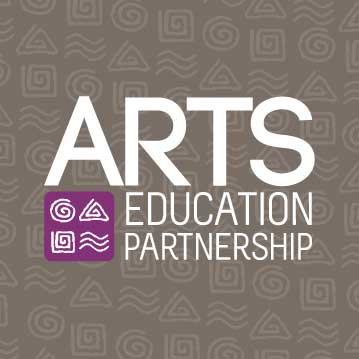This is guest post comes from Lisa Rathje, executive director of Local Learning: The National Network for Folk Arts in Education, a partner of the Arts Education Partnership.
As a folklorist, I know that narratives based in racism, sexism and other ideologies of power and control act insidiously (and often invisibly) in our schools and communities to create fear and division. In an effort to create safe spaces in classrooms across the country for learners from all walks of life, inclusive folk arts pedagogy can facilitate greater understanding between students and educators of many cultural backgrounds.
Small, yet critically engaged, academically rooted, and progressive, the field of Folk Arts in Education builds knowledge and skills through traditional and meaningful community art practices. Local Learning began as the National Task Force for Folk Arts in Education at the National Endowment for the Arts, and it continues to serve the field of education by bringing a cultural framework to professional development and educational resources. To serve the field of folklore, we create pathways from schools and learning spaces to traditional artists and bring educational models to folk arts programming.
For 25 years, Local Learning has encouraged inclusive pedagogy focused on radical student engagement and agency. Greater awareness of self through a discovery process rooted in ethnography increases student engagement, confidence and readiness to learn. Additionally, there is a pedagogical advantage to teaching students who know that their epistemological capital is a valid currency in the classroom. When educators acknowledge this cultural knowledge that walks into the classroom with students every day, they may open doors to many voices. As Founding Director of Local Learning Paddy Bowman and I recently wrote: “Educators stand at the forefront of social change. Whether the issue is immigration, migration, economic downturns, trending naming traditions, health, bigotry, civic engagement, or civil society, teachers are often the first to recognize cultural shifts that directly affect their classrooms. Thus, they are often the first who must develop responses to change.” Through Local Learning, we continue to create opportunities for cultural art forms and local aesthetic values to have a place in our diverse, dynamic classrooms.
The Journal of Folklore and Education offers case studies of programs around the nation that create safer, more just and equitable learning spaces and curricula. We also publish research and framework articles that theorize our practice, and in the coming year, we will amplify the linkages between folklore and science. Folk arts are uniquely suited to explore the history, aesthetics, geography, sense of place and values of different cultures and communities, including school communities.
These stories illustrate how educators in the arts utilize folk arts in education to foster inclusive learning:
- “Music Teachers Reimagining Musical Focus, Function, and Performance for Newcomer Students.” This piece advocates for careful listening to students’ knowledge of and passion for music in their lives, and demonstrates how K-12 school music programs are uniquely positioned to create productive learning spaces for refugee and immigrant students.
- “Dismantling Racism in Museum Education.” This article creates an opportunity for readers to think critically about how to dismantle racist practices in their professional lives, and offers lively ways to talk about power and privilege.
- “Folklife Education: A Warm Welcome Schools Extend to Communities” This article uses research from the Folk Arts-Cultural Treasures Charter School to demonstrate that increasing student participation in school by tapping into their community knowledge supports students’ cultural competency and can positively affect academic achievement.
Learn more about Local Learning on our website.




